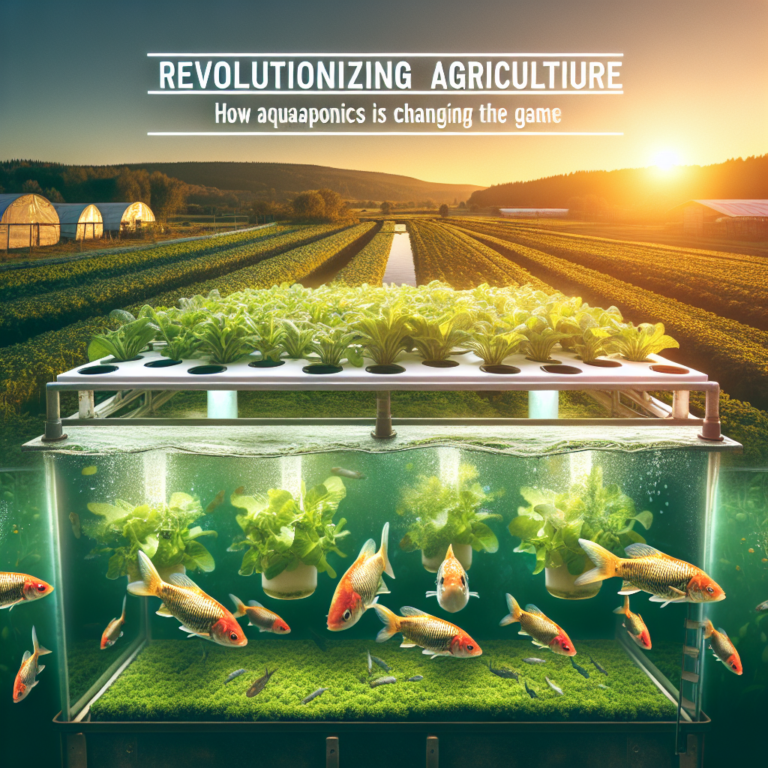Agriculture has been a vital part of human civilization for thousands of years, providing us with the food and resources needed for survival. However, traditional farming methods can be inefficient, unsustainable, and harmful to the environment. In recent years, a revolutionary agricultural technique known as aquaponics has been gaining popularity and changing the game in the world of farming.
Aquaponics is a system that combines aquaculture (the farming of fish) and hydroponics (the cultivation of plants in water) in a symbiotic environment. In an aquaponic system, fish waste provides nutrients for the plants, while the plants filter the water for the fish, creating a self-sustaining ecosystem. This closed-loop system mimics the natural processes of a pond or lake, making it highly efficient and environmentally friendly.
One of the key benefits of aquaponics is its ability to produce high yields of food in a small space. By cultivating plants vertically in water instead of soil, aquaponic systems can produce up to ten times more crops in the same area as traditional farming methods. This is particularly valuable in urban areas where space is limited, allowing for the production of fresh, locally-grown food in city centers.
Additionally, aquaponics uses significantly less water than conventional farming methods. In a traditional farm, water is often wasted through evaporation, run-off, and inefficient irrigation systems. In contrast, aquaponic systems recycle water within the closed-loop system, reducing water usage by up to 90%. This not only conserves a precious resource but also minimizes the risk of water pollution from agricultural runoff.
Furthermore, aquaponics is a highly sustainable agricultural practice. By combining fish and plant cultivation in one system, aquaponics eliminates the need for chemical fertilizers and pesticides, which can harm the environment and contaminate water sources. The natural symbiosis between fish and plants creates a balanced ecosystem where each component benefits the other, resulting in a more resilient and environmentally friendly farming system.
Aquaponics also has the potential to revolutionize food production in regions with limited access to arable land or clean water. By growing food in water instead of soil, aquaponics can be implemented in a wide range of environments, from urban rooftops to arid deserts. This makes it a valuable tool for addressing food insecurity and promoting sustainable agriculture in communities around the world.
Overall, aquaponics is changing the game in agriculture by offering a more efficient, sustainable, and environmentally friendly way of producing food. As we face increasing challenges from climate change, population growth, and resource scarcity, aquaponics provides a promising solution for feeding a growing global population while protecting the planet for future generations. Revolutionizing agriculture one fish and plant at a time, aquaponics is truly a game-changer in the world of farming.
